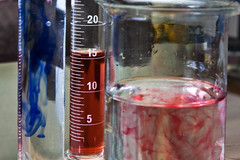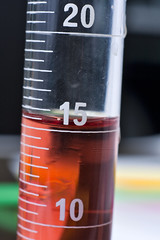 Image via Wikipedia
Image via Wikipedia
The New Mexico Supreme Court reversed the Courts of Appeals ruling from last year which legitimated DWI/DUI charges against individuals who were sleeping in their vehicles effectively taking the driving out of drinking and driving.The court's decision in the case that was just recently overturned effectively held that an intoxicated person found asleep behind the wheel of his vehicle--where there were no keys in the ignition--was in "control" of the vehicle while intoxicated and thus "operated" the vehicle while intoxicated even though he never intended to drive it. The failure to consider the intent of the defendant thus resulted in a ridiculous decision that defied common sense. Fortunately, as explained in the post, the appellate court wisely reversed this inane decision:
The Supreme Court in State v. Simms stated that there must be intent to drive. In effect, there can no longer be a generalized intent to drive as evidenced by proximity to the vehicle. Neither can the issue be couched entirely in the terms of control of the vehicle...The Court in essence adopted the public policy rationale of allowing drivers to sleep off their intoxication.Visit Americas Top DUI and DWI Attorneys at www.1800dialdui.com or call 1-800-DIAL-DUI to find a DUI OUI DWI Attorney Lawyer Now!










![Reblog this post [with Zemanta]](http://img.zemanta.com/reblog_e.png?x-id=788ac73d-acc1-4d8c-9eb1-bd7013b8ba88)

![Reblog this post [with Zemanta]](http://img.zemanta.com/reblog_e.png?x-id=48738c30-e35b-4e5c-8e23-175eaf187d96)